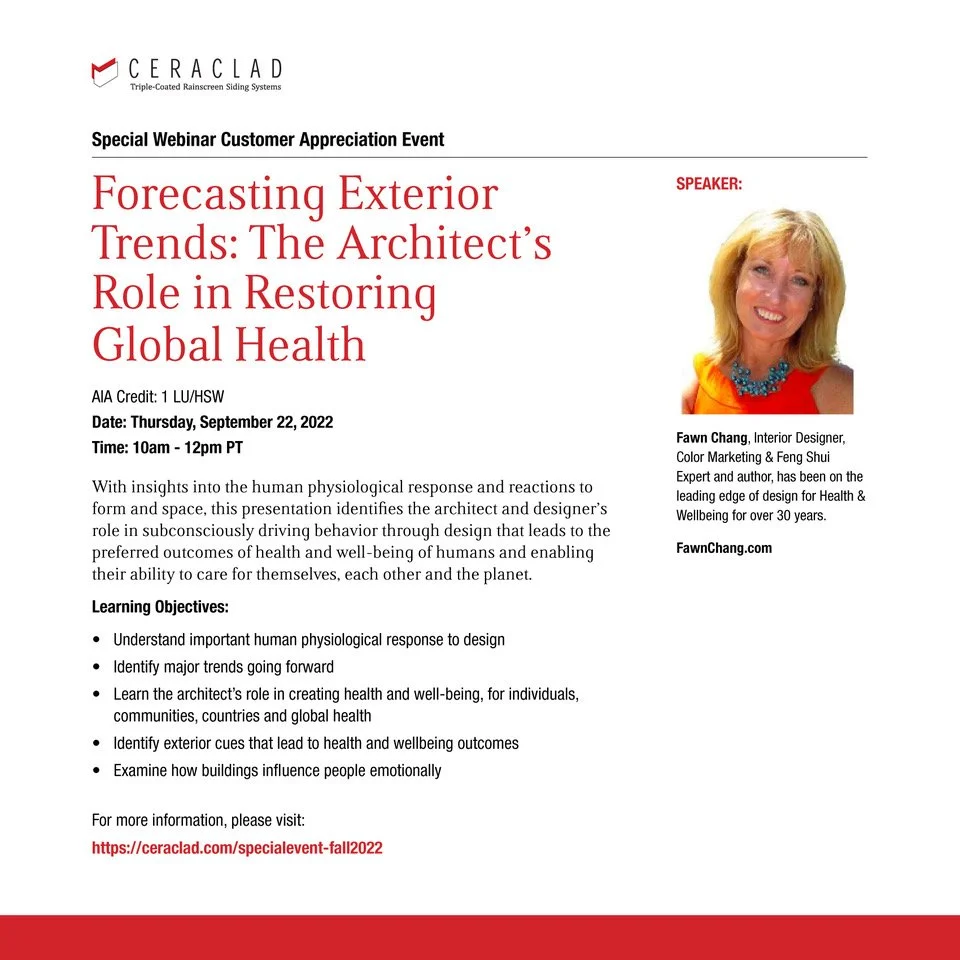Architecture sits at the intersection of human and environment and subconsciously drives human behavior. Done well, design uplifts and encourages health and well-being. Using leading edge research this thought-provoking presentation identifies the significant global trends going forward. Delivering the neuroscience, neuroarchitecture and neuromarketing at the intersection of human and built environment, this inspiring presentation introduces the power of architecture and design to restore the relationship with human community and environmental well-being. With insights into the human physiological response and reactions to form and space, this presentation identifies the architect and designer’s role in subconsciously driving behavior through design that leads to the preferred outcomes of health and well-being of humans and enabling their ability to care for themselves, each other and the planet.
Learning Objectives
Learn the human experience of space as it drives behavior
Learn insights into the mind’s conscious and unconscious reactions to form, color, structure and space
Understand important human physiological response to design
Identify major trends going forward
Learn the architect’s role in creating health and well-being, for individuals, communities, countries and global health.
Identify exterior cues that lead to health and wellbeing outcomes
Examine how buildings influence people emotionally.
Earn 1 LU/ HSW



























